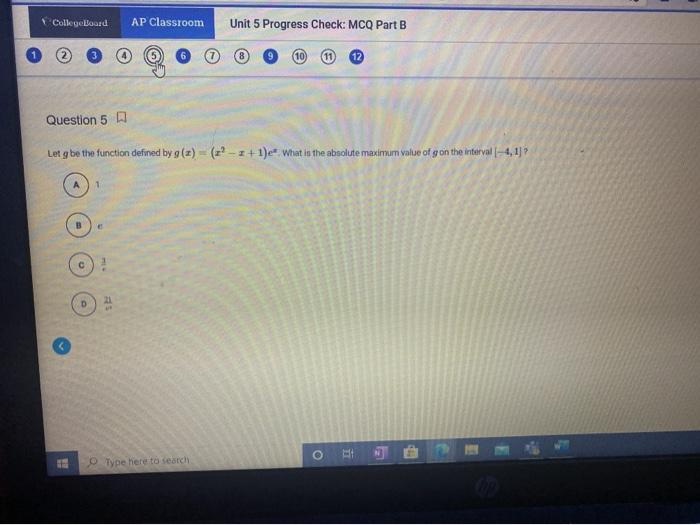AP Psychology Unit 6 Progress Check MCQ delves into the intricacies of the human mind, providing a comprehensive assessment of key concepts, question types, and strategies for success. Embark on this academic journey to master the complexities of psychology.
This guide will equip you with a thorough understanding of the key terms, question formats, and strategies necessary to excel in the Progress Check MCQ. By exploring common pitfalls and effective study techniques, you will gain the confidence to tackle this assessment with ease.
1. Key Concepts in AP Psychology Unit 6
Progress Check MCQ
The Progress Check MCQ covers key terms and concepts from Unit 6 of AP Psychology. These include:
- Classical conditioning: A type of learning in which a neutral stimulus is paired with a meaningful stimulus, so that the neutral stimulus eventually elicits the same response as the meaningful stimulus.
- Operant conditioning: A type of learning in which a behavior is reinforced or punished, so that the behavior becomes more or less likely to occur in the future.
- Cognitive psychology: The study of mental processes, such as thinking, memory, and language.
- Social psychology: The study of how people think, feel, and behave in social situations.
- Developmental psychology: The study of how people change and grow throughout their lives.
2. Types of Progress Check MCQ Questions: Ap Psychology Unit 6 Progress Check Mcq

The Progress Check MCQ includes various types of questions, such as:
- Multiple choice questions: These questions provide a list of answer choices, and the student must select the best answer.
- True/false questions: These questions require the student to determine whether a statement is true or false.
- Short answer questions: These questions ask the student to provide a brief answer to a question.
Each type of question requires different strategies for answering. For multiple choice questions, it is important to read the question carefully and eliminate any answer choices that are clearly incorrect. For true/false questions, it is important to read the statement carefully and identify the key words.
For short answer questions, it is important to organize your thoughts and write a clear and concise answer.
3. Common Pitfalls in Progress Check MCQ
Students often make common mistakes when answering Progress Check MCQs. These mistakes include:
- Not reading the question carefully
- Not eliminating incorrect answer choices
- Guessing on answers
- Not using time wisely
To avoid these pitfalls, it is important to read the question carefully, eliminate incorrect answer choices, and use your time wisely. It is also helpful to practice answering MCQs in advance.
4. Strategies for Success on Progress Check MCQ

There are several effective strategies for preparing for and taking the Progress Check MCQ. These strategies include:
- Reviewing the course material
- Taking practice tests
- Managing your time wisely
- Selecting questions carefully
- Verifying your answers
By following these strategies, you can increase your chances of success on the Progress Check MCQ.
5. Sample Progress Check MCQ Questions

Here is a sample set of Progress Check MCQ questions:
- Which of the following is an example of classical conditioning?
- (A) A dog salivating when it hears a bell
- (B) A child learning to ride a bike
- (C) A person developing a fear of spiders
- (D) A student studying for a test
- Which of the following is an example of operant conditioning?
- (A) A teacher giving a student a reward for good behavior
- (B) A child learning to speak
- (C) A person developing a phobia
- (D) A student studying for a test
Answer key:
- (A)
- (A)
Commonly Asked Questions
What are the key concepts covered in the Progress Check MCQ?
The Progress Check MCQ covers essential concepts in AP Psychology Unit 6, including learning, memory, cognition, and language.
What types of questions can I expect on the Progress Check MCQ?
The Progress Check MCQ features various question types, such as multiple-choice, true/false, and short answer questions.
What are some common pitfalls to avoid when answering the Progress Check MCQ?
Common pitfalls include misinterpreting questions, rushing through answers, and neglecting to review your responses.